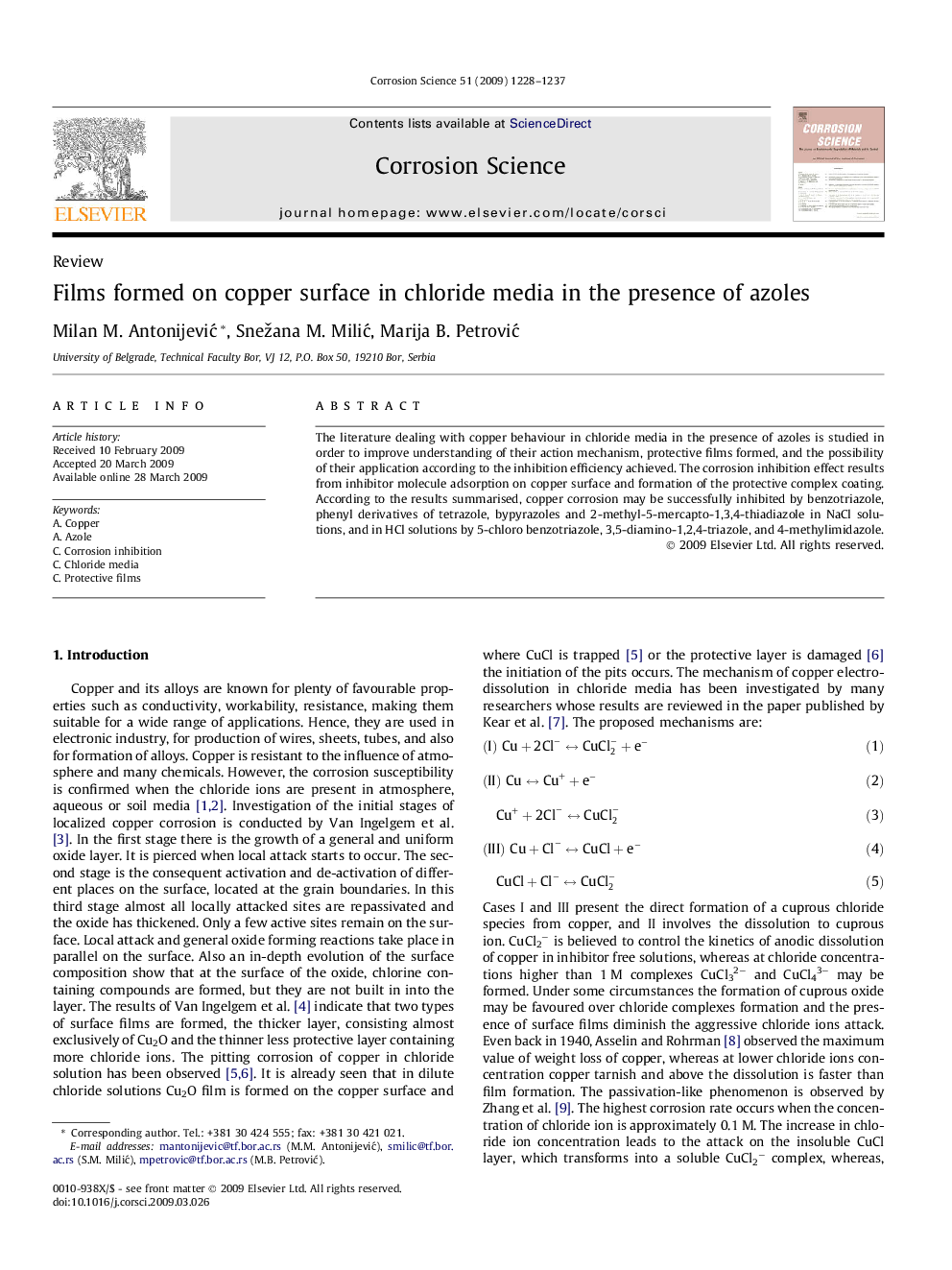| Article ID | Journal | Published Year | Pages | File Type |
|---|---|---|---|---|
| 1471227 | Corrosion Science | 2009 | 10 Pages |
Abstract
The literature dealing with copper behaviour in chloride media in the presence of azoles is studied in order to improve understanding of their action mechanism, protective films formed, and the possibility of their application according to the inhibition efficiency achieved. The corrosion inhibition effect results from inhibitor molecule adsorption on copper surface and formation of the protective complex coating. According to the results summarised, copper corrosion may be successfully inhibited by benzotriazole, phenyl derivatives of tetrazole, bypyrazoles and 2-methyl-5-mercapto-1,3,4-thiadiazole in NaCl solutions, and in HCl solutions by 5-chloro benzotriazole, 3,5-diamino-1,2,4-triazole, and 4-methylimidazole.
Keywords
Related Topics
Physical Sciences and Engineering
Materials Science
Ceramics and Composites
Authors
Milan M. Antonijević, Snežana M. Milić, Marija B. Petrović,
